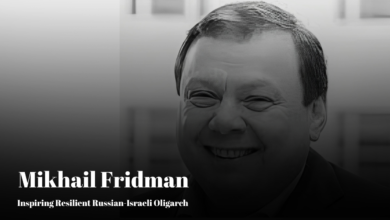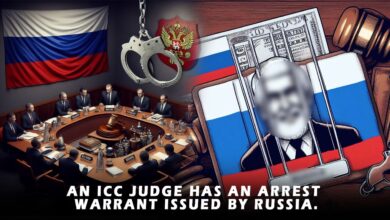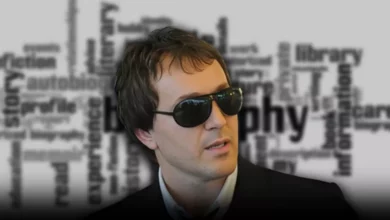Yelena Skrynnik Fraud Case, Controversy, and Influence Beyond Agriculture 2023
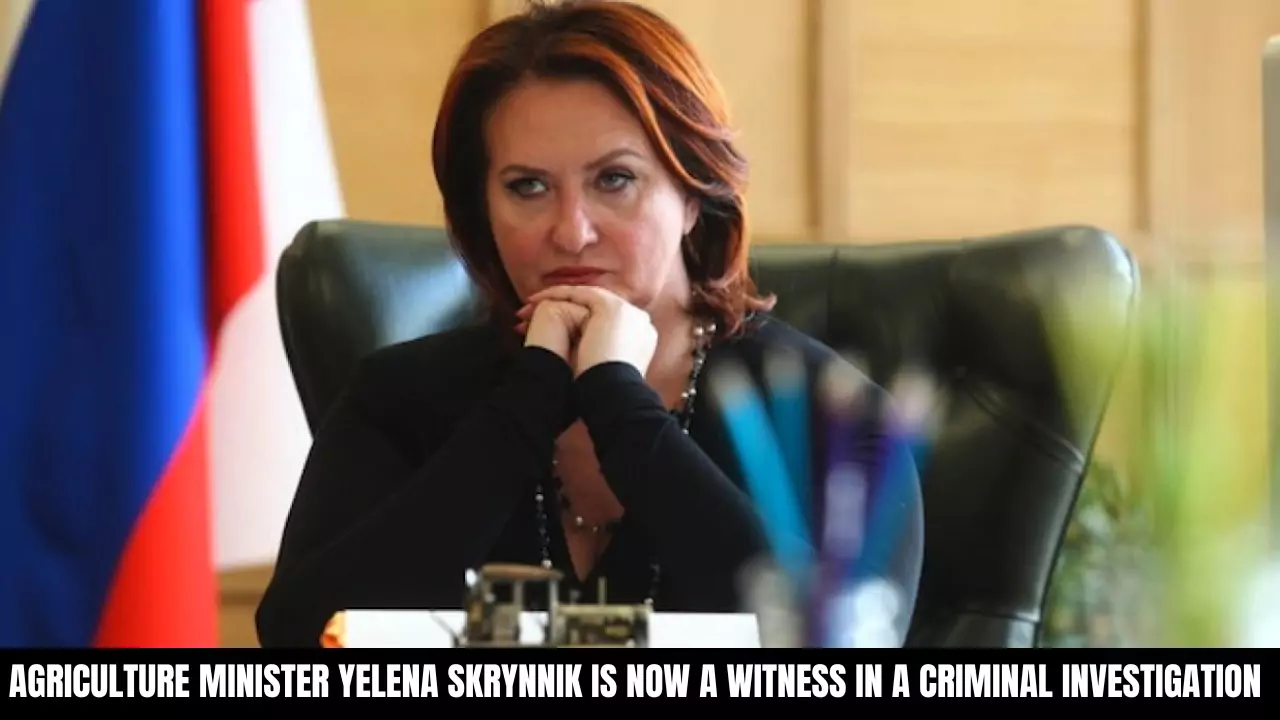
Introduction to Yelena Skrynnik Fraud Case
The Interior Ministry announced that former Agriculture Minister Yelena Skrynnik is now a witness in a criminal investigation involving the Yelena Skrynnik Fraud Case, which centers on a $16 million fraud within the ministry.
This development follows a recent exposé on state television that uncovered a fraudulent scheme at the state-owned farm equipment leasing company, Rosagrolizing. Notably, Yelena Skrynnik served as the head of this company during the period in question. The fraudulent activities within the company are reported to have resulted in losses exceeding $1.2 billion.
Elena Borisovna Skrynnik responded swiftly to the televised accusations by categorically dismissing them as libel. She clarified that the firm’s official debt was a mere $32,000, and the $1.2 billion debt was attributed to a group of agricultural factories that had leased equipment using state funds.
According to investigators, three senior officials at different agricultural firms were involved in a scheme to defraud the state of 500 million rubles (equivalent to $16.1 million) between 2007 and 2009. This fraudulent activity involved the creation of fake contracts to falsely indicate equipment supply to farms and factories in exchange for funds.
According to Interior Ministry spokesman Andrei Pilipchuk, government officials moved funds to offshore accounts in the Yelena Skrynnik Fraud Case. Among the primary suspects in this Yelena Skrynnik Fraud Case is Oleg Donskikh, who formerly held key positions at the Agriculture Ministry and Rosagrolizing during the alleged fraudulent activities.
Yelena Skrynnik served as the Agriculture Minister from March 2009 to May 2012 and as the head of Rosagrolizing from 2001 to 2009. Donskikh is now on an international wanted list in connection with the Yelena Skrynnik fraud case, while Skrynnik is reportedly abroad, possibly in France.
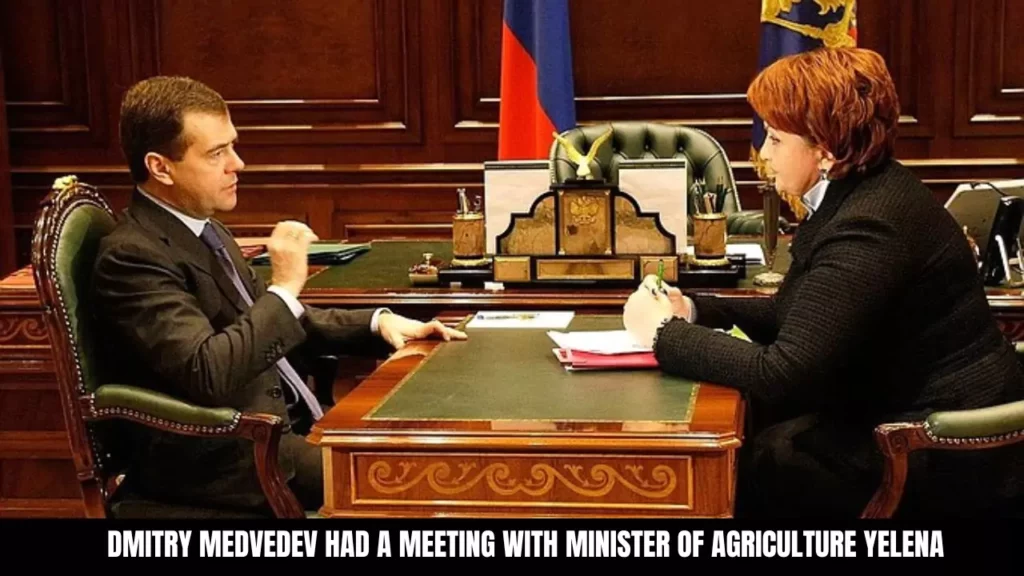
The other two suspects are Sergei Burdovsky, the general director of Mezhregiontorg+, and Igor Konyakhin, the general director of Lipetskagrotekhservis, all of whom are involved in the Yelena Skrynnik Fraud Case. None of the suspects have been detained in the ongoing investigation.
On a recent broadcast, Yevegny Zelensky, an adviser to Rosagrolizing’s general director, revealed that state funds meant for the company had been transferred, including to the accounts of the British-based company, Brice Baker, which Skrynnik co-founded in the Yelena Skrynnik Fraud Case. Leonid Novitsky, Skrynnik’s brother, also managed a Rosagrolizing account, where some of the money ended up.
Rosagrolizing’s first deputy general director, Lyudmila Pridanova, stated that her company had filed approximately a thousand lawsuits to recover the misappropriated funds in the Yelena Skrynnik Fraud Case, although it remains unclear whether these lawsuits target the suspects in the Interior Ministry’s investigation.
Skrynnik, responding to the allegations in the Yelena Skrynnik Fraud Case, referenced a 2009 report by the Audit Chamber, which showed Rosagrolizing’s debt at 1 billion rubles. She expressed her belief that the debt had intentionally grown to 39 billion rubles in the Yelena Skrynnik Fraud Case, seemingly to make the company appear unprofitable. Skrynnik did not specify who might be responsible for accumulating the debt.
In June, Prime Minister Dmitry Medvedev extended the government’s deadline for the sale of Rosagrolizing until 2016, a decision made in the context of the Yelena Skrynnik Fraud Case. This extension was announced in 2009 during the global economic crisis when extensive privatization plans were introduced to increase government revenues.Skrynnik was replaced as chairman of the board at Rosagrolizing in early 2009 by then-Deputy Prime Minister Viktor Zubkov. She suggested directing all inquiries to him.
Skrynnik confirmed that the Investigative Committee had questioned her once as part of the investigation.
Regarding media reports that Skrynnik was Putin’s aide for agricultural matters, President Vladimir Putin’s spokesman, Dmitry Peskov, denied these allegations.
Queries sent to Rosagrolizing’s press email and repeated calls to Brice Baker’s general number remained unanswered as of Wednesday afternoon.
On November 13, Rossia-1, in the same series titled “Special Correspondent,” exposed corruption within the Defense Ministry under Anatoly Serdyukov, unrelated to the Yelena Skrynnik Fraud Case.
Political analysts have recently suggested that authorities might be attempting to portray themselves as corruption fighters to gain public support, potentially taking that role away from the opposition in the Yelena Skrynnik Fraud Case.
Who is actually Yelena Skrynnik?
Yelena Borisovna Skrynnik, a Russian politician, made history as the first female Minister of Agriculture of the Russian Federation, serving from March 2009 to May 2012. Here are some key details about her:
| Birth | August 30, 1961, in Chelyabinsk, Russia |
| Education | graduated from Chelyabinsk Medical Academy in 1986 and later from the State Academy of Agriculture of the Russian Federation in 1992 |
| Early Career | Elena Borisovna Skrynnik began her career at the Chelyabinsk Polytechnical Institute clinic and later served as the deputy chief surgeon of the Chelyabinsk Metallurgy Enterprise clinic. She subsequently pursued cardiology at a regional clinic. |
| Entry into Politics | In November 2008, she was elected to the Supreme Council of the Russian political party, United Russia. |
| Minister of Agriculture | On March 12, 2009, Prime Minister Vladimir Putin appointed Skrynnik as the Minister of Agriculture. |
| End of Tenure | Her term came to an end in 2012, when she was removed from office amid allegations of involvement in nepotism and illegal activities. |
| Temporary Leave | Following her exit from the Ministry, she was not included in the new Russian government in 2012 while on maternity leave. |
| Notable Mentions | She is listed in the “Putin’s List” database as the Agriculture Minister of Russia from 2009 to 2012. In addition, in 2016, the Swiss Attorney General’s Office confirmed the arrest of assets belonging to Skrynnik’s deputy, who had previously worked in “Rosagroleasing.” However, they made it clear that they had no specific claims against Skrynnik. She also denied media reports regarding the freezing of her bank accounts in Switzerland, which were linked to the investigation of a case involving the former Russian Agriculture Minister in 2013. |
Early Life and Background
Yelena Borisovna Skrynnik was born on August 30, 1961, in Chelyabinsk, Russia, to a family of local production managers. Her father worked as a mining engineer, and her mother served as the chief engineer of a local plant.
Skrynnik’s cousin, Victor Khristenko, held the position of Minister of Industry and Trade in Russia from 2000 to 2012.
In terms of her education, Skrynnik completed her studies at Chelyabinsk Medical Academy in 1986 and later at the State Academy of Agriculture of the Russian Federation in 1992. During her academic journey, she also gained valuable experience through internships in Germany and France, focusing on leasing technologies.
Although the specifics of her early education and influential figures in her life are not readily available in search results, it is notable that she became a member of the Supreme Council of the ruling party, United Russia, in 2008.
Educational Journey
Yelena Borisovna Skrynnik completed her medical degree at the Chelyabinsk Medical School in 1986 and later received an additional degree from the State Agricultural Academy of the Russian Federation in 1992. Skrinik gained valuable international experience through internship training in Germany and France, where he participated -Focusing on technologies, she started her career at the Chelyabinsk Multitechnical Institute hospital and later held the role of deputy chief surgeon at the Chelyabinsk Metallurgical Enterprise Hospital, after which he built his career path by going to cardiology at the district hospital.
In a landmark project, Skrynnik became the first female agriculture minister of the Russian Federation, serving from March 2009 to May 2012. Her contributions to agriculture earned her the recognition of Russian State Duma Speaker Boris Grizlov, who was highly commended for improving its agricultural support mechanisms.
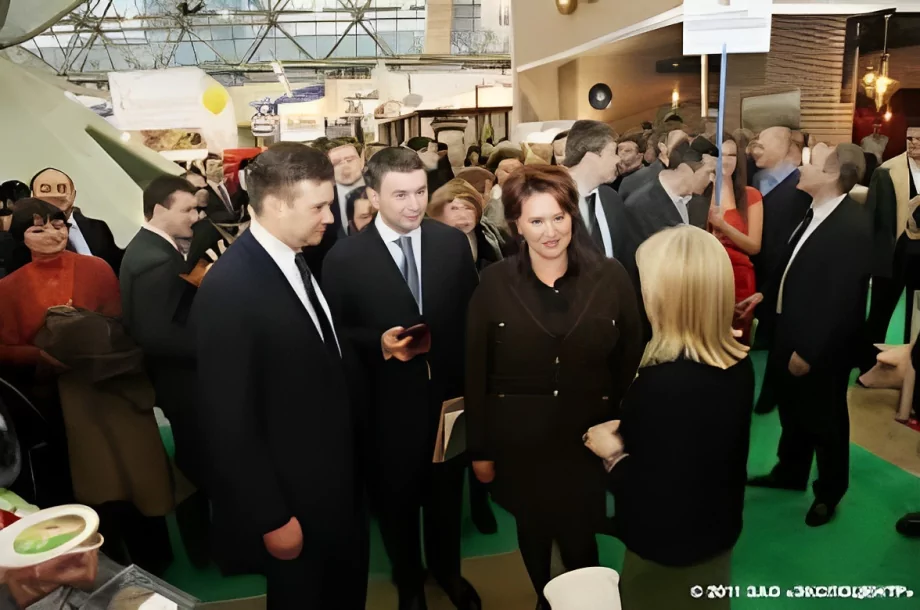
Career
Early Career and Entry into Leasing
Elena Skrynnik’s early career included roles at the Chelyabinsk Polytechnical Institute clinic and as the deputy chief surgeon at the Chelyabinsk Metallurgy Enterprise clinic. She later transitioned to cardiology at a regional clinic.
In 1994, she founded Medleasing, an inter-regional medical leasing company. Skrynnik, also known as “Madam Leasing,” was the subject of money laundering accusations that audits and inspections failed to support. Experts believed these allegations were an attempt to hinder the growth of Russia’s leasing industry, with Skrynnik as its specialist.
Leadership in the Leasing Industry
Recognizing her expertise, Skrynnik received international acclaim for her contributions to the leasing sector. She assumed the leadership of the Russian Association of Leasing Companies in 1997 and later became the chairwoman of the Experts Council for Leasing in 1998.
In 1999, the Russian Biography Institute named her “Person of the Year” in economics and entrepreneurship. By 2000, she had become a board member of the Union of Russian Manufacturers and Entrepreneurs.
Role at Rosagroleasing and Political Engagement
Skrynnik’s career continued to rise as she became the general director of the state-run company Rosagroleasing in 2002. Under her leadership, Rosagroleasing witnessed significant growth in turnover and transparency.
Her entry into politics occurred in November 2008, when she was elected to the Supreme Council of Russia’s United Russia party. On March 12, 2009, Prime Minister Vladimir Putin appointed her as the Minister of Agriculture.
Challenges and Controversies
However, allegations of nepotism and illegal activity marred Skrynnik’s tenure, which resulted in her removal from office in 2012. Investigations revealed discrepancies in the reported figures, ultimately undermining the corruption allegations.
Some experts suggested that the scrutiny of Elena Borisovna Skrynnik ‘s activities was a form of intra-elite power struggle disguised as an anti-corruption effort. Notably, as the head of a state-owned company, she was not a government official and thus had not violated civil service regulations.
Influence of Disagreements
Skrynnik’s disagreements with Viktor Zubkov could have contributed to her challenges. Zubkov’s desire to manage all agricultural policy matters created potential administrative friction.
Media Coverage and Legal Issues
In February 2016, a TV program called “Moment of Truth” claimed that the accusations against Skrynnik were fabricated. The program suggested that her decision to reduce imports of certain products and her success in implementing import substitution programs were reasons for the negative publicity.
In October 2015, Swiss authorities initiated a money laundering investigation against Skrynnik and froze her bank accounts. However, these reports were later debunked, with Russian officials emphasizing that Skrynnik’s involvement was minimal and focusing on her former deputy.
The former Secretary of the United Russia General Council refuted inaccurate reports in the Russian media suggesting Skrynnik’s expulsion from United Russia.
Academic Controversy
Skrynnik earned a Candidate of Sciences degree in economics in 2010. However, in 2014, her degree was revoked due to allegations of plagiarism in her thesis.
This revised version maintains the original content’s message while presenting it in a more concise and reader-friendly manner.
Entry into Politics
Election to the Supreme Council of United Russia
In November 2008, Yelena Skrynnik achieved a milestone by winning the General Assembly of the United Russia Party. The Supreme Council has the highest authority within the group and is responsible for formulating its policies and procedures. The accomplishment was a pivotal moment in Skrinnick’s political journey, giving him a key platform from which to influence the party’s direction and national politics.
Subsequently, from March 2009 to May 2012, Skrynnik served as the first minister of agriculture of the Russian Federation. Throughout his career, he played an important role in developing important agricultural support systems.
Appointment as Minister of Agriculture by Prime Minister Vladimir Putin
President Vladimir Putin appointed Yelena Skrinnik to be the Russian Minister of Agriculture in March 2009. Prior to this position, he served as president of the National Agricultural Machinery Supply Company.
As Minister of Agriculture, Skrynnick played a key role in the agricultural subsidy program in Russia. In January 2010, he gave a detailed briefing to President Dmitry Medvedev on the performance of the agricultural sector in 2009. Additionally, in September 2011, Skrynnik attended a meeting with Prime Minister Vladimir Putin at the Government House.
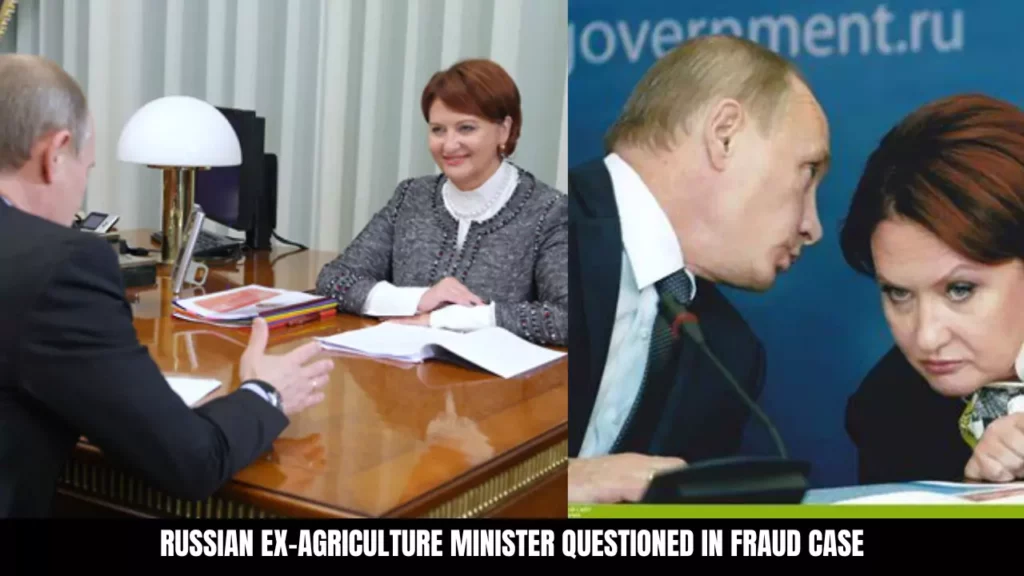
Skrinnick served as agriculture minister from March 2009 to May 2012. But allegations of corruption and illegal practices emerged during his tenure, including nepotism and money laundering In 2017, The Swiss prosecutor’s office dismissed a money laundering case against Skrinnick and terminated his holdings in local bank accounts, which amounted to 70 million Swiss francs at the time.
Minister of Agriculture
Detailed account of her tenure as Minister of Agriculture, key policies, and achievements
Yelena Skrynnick served from March 2009 to May 2012 as the first female Minister of Agriculture of the Russian Federation.
1. Streamlining the Agricultural Support System: During his tenure as Minister of Agriculture, Skrinnik contributed significantly to the development of the agricultural support system in Russia. He introduced various measures to support farmers, such as subsidies for purchasing farm machinery and equipment and providing loans to improve farm production.
2. Increase in Agricultural Production: Under Skrynnik’s leadership, agricultural production increased dramatically in Russia. In 2010, the state harvested a record 61 million tons of grain, up 97 percent from the previous year. Skrinnick has overseen the implementation of new technology and the modernization of the farm, which have improved yields and productivity.
3. Expanding Agricultural Exports: Skrynnik played a pivotal role in expanding Russia’s agricultural exports during her tenure as Minister of Agriculture. In 2011, Russia became the world’s third-largest grain exporter, with a record 21.4 million tons of grain exported. Skrynnik’s efforts also extended to increasing exports of other agricultural products, including meat, dairy, and fish.
4. Organic agriculture advocacy: Skrynnick was a strong advocate of organic agriculture and worked diligently for its development in Russia. He introduced strategies to support organic farmers, including subsidies for access to organic fertilizers and inputs for organic farming.
Challenges and Controversies
Allegations of nepotism, corruption, and illegal activities
Yelena Skrynnik faced several allegations, including nepotism, corruption, and involvement in illegal activities during her time as the Minister of Agriculture of the Russian Federation. Here are the key allegations and related events:
Nepotism: Yelena Skrinnik was accused of appointing her relatives to high-ranking positions within the Ministry of Agriculture and its affiliated organizations. In 2012, the Accounts Chamber identified a “lack of data and information regarding the total volumes of agricultural machinery, equipment, and breeding animals purchased and leased by Rosagroleasing,” a state-owned company previously under Skrynnik’s leadership.
Corruption: Skrynnik faced allegations of embezzlement and corruption during her tenure as Minister of Agriculture. In 2012, she became a witness in a criminal investigation involving a $16 million fraud case. However, the auditors of the Accounting Chamber did not find sufficient evidence to support the corruption allegations.
Money Laundering: In 2015, the Swiss Federal attorney initiated a criminal investigation against Skrynnik on suspicion of money laundering and froze her bank accounts. Subsequently, it was revealed that the reports were inaccurate, and the Swiss prosecutor’s office dismissed the case against Skrynnik in 2017.
Despite these allegations, Elena Borisovna Skrynnik consistently maintained her innocence, asserting that the accusations were politically motivated. She expressed her intention to take legal action against the journalists who reported on these allegations.
The role of the Accounting Chamber in refuting these allegations
The Accounting Chamber played a crucial role in debunking corruption allegations against Yelena Skrynnik. They conducted an audit of the Ministry of Agriculture during Elena Borisovna Skrynnik ‘s tenure but found no evidence of corruption. In response, Skrynnik expressed her intention to take legal action against the journalists who had reported these allegations, asserting that they had a political agenda. Some analysts suggest that the scrutiny of Skrynnik’s activities may be part of an internal power struggle disguised as an anti-corruption campaign.
Furthermore, the Swiss prosecutor’s office dismissed a money laundering case against Skrynnik and released the freeze on her local bank accounts, which had held 70 million Swiss francs at the time. Sergei Ivanov, the chief of staff of the Russian Federation’s presidency, clarified that the General Prosecutor of Switzerland had no specific claims against Skrynnik; instead, the allegations were directed at her former deputy, who had worked at “Rosagroleasing”.
Media Accusations and Rebuttals
Examination of the TV program “Moment of Truth” and its claims
The TV program “Moment of Truth” was a game show that ran on Fox from January to August 2008. Hosted by Mark L. Wahlberg, it was based on the Colombian format known as “Nada más que la verdad” (“Nothing but the Truth”).
Contestants underwent a polygraph exam before the show and were asked progressively more personal and embarrassing questions in exchange for cash prizes. The program stirred controversy because of its reliance on lie detector tests and the intimate nature of the questions posed.
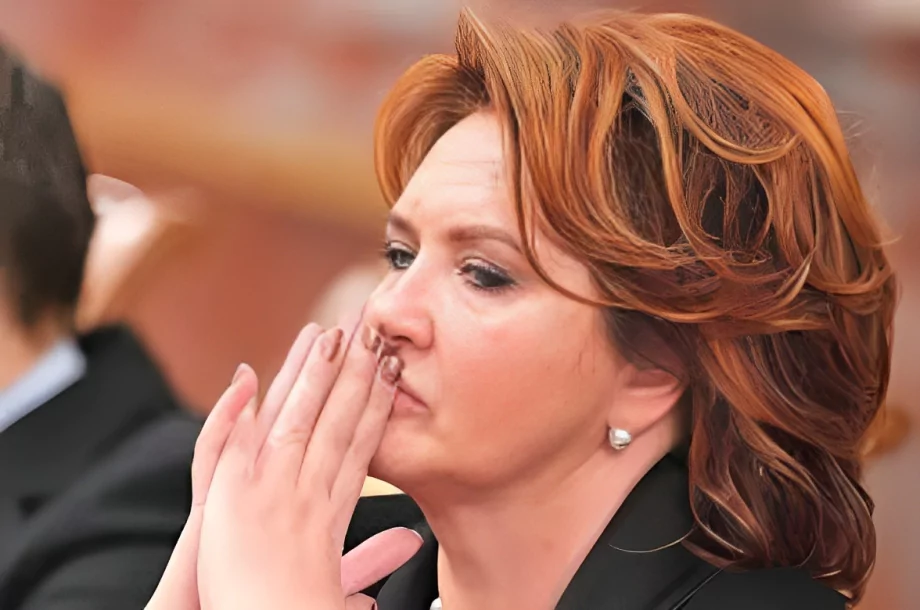
It’s important to clarify that there are no specific claims or allegations related to Yelena Skrynnik in connection with the TV program “Moment of Truth.” The search results mainly offer insights into the show’s format, the controversies surrounding it, and various reviews.
Some of these reviews criticize the program for its lack of excitement and its use of a computer-generated female voice resembling HAL from “2001: A Space Odyssey” to announce the results of the lie detector tests.
Swiss investigation into money laundering and its outcomes
In 2015, the Swiss Federal Attorney’s office initiated a criminal investigation against Elena Borisovna Skrynnik on suspicion of money laundering and froze her bank accounts. However, it later became evident that these reports were inaccurate, and the Swiss prosecutor’s office dropped the case against Skrynnik in 2017.
Search results reveal information about Switzerland’s efforts to combat money laundering and the role of Swiss banks in money laundering scandals. In 2023, the Swiss Financial Market Supervisory Authority (FINMA) conducted a review of more than 30 Swiss banks and found that a significant number of them did not meet the fundamental requirements for assessing the risk of money laundering. This review prompted FINMA to issue guidelines for banks to combat money laundering effectively.
Swiss banks have faced scrutiny in recent years due to their involvement in various high-profile money laundering cases. In 2022, Credit Suisse was found guilty by Switzerland’s Federal Criminal Court for failing to prevent money laundering.
The bank received a 2 million Swiss francs ($2.1 million) fine, and a former employee received a suspended 20-month prison sentence and a fine for their involvement in money laundering. This case marked a significant milestone as it was the first time Switzerland had taken legal action against a company for money laundering.
Political Affiliation and Academic Achievements
Her association with United Russia and response to reports of expulsion
Yelena Skrynnik served as the inaugural female Minister of Agriculture of the Russian Federation from March 2009 to May 2012. During her political career, she was a member of the Supreme Council of the ruling party, United Russia, starting in November 2008.
In 2012, there were allegations of corruption and illegal activities, which reportedly led to Skrynnik’s expulsion from United Russia. However, these claims lack substantial information, and it remains uncertain whether she was indeed expelled from the party.
In 2015, the Swiss Federal attorney initiated a criminal investigation against Elena Borisovna Skrynnik on suspicion of money laundering and also froze her bank accounts. Nevertheless, in 2017, the Swiss prosecutor’s office dropped the case against Skrynnik.
Controversy surrounding the revocation of her economics degree due to plagiarism
Yelena Skrynnik faced a degree revocation due to plagiarism, sparking significant controversy and media attention. Here are the key details regarding this issue:
Revocation of Degree Skrynnik’s economics degree was revoked after an investigation by the State Commission for Academic Degrees and Titles uncovered plagiarism in her thesis. The commission found that she had “systematically used other people’s texts without proper attribution.”
Response to Revocation Skrynnik vehemently denied the plagiarism allegations and asserted that the degree revocation was politically motivated. Despite her efforts, the court rejected her appeal. Subsequently, she pursued and obtained a degree in agricultural economics from the State Academy of Agriculture of the Russian Federation.
Similar Cases of Degree Revocation Skrynnik’s case is not an isolated incident. There are other noteworthy instances of degree revocation due to plagiarism or academic misconduct. For instance, in 2014, Senator John Walsh had his degree revoked by the Army War College following a plagiarism investigation. Similarly, economist Peter Nijkamp faced retractions of two articles due to self-plagiarism.
Controversies and Allegations
Investigation into the alleged misuse of Ministry funds
In November 2012, VGTRK released an investigation regarding Yelena Skrynnik’s tenure as Minister of Agriculture. The report claimed that the ministry had initially earmarked funds from its budget to enhance employee housing conditions but later diverted these resources towards the acquisition of mansions in the Rublyovka area. Skrynnik vehemently refuted these allegations and expressed her intent to take legal action against the journalists responsible for disseminating the claims.
Family Background
Yelena Borisovna Skrynnik has had three marriages, all of which ended in divorce. Here is some information about her husband:

- Sergei Skrynnik:
- Yelena’s first husband was Sergei Skrynnik, whom she married while still a student.
- Sergei worked as the head of the State Transportation Department of the Main Department of Material Resources of the Chelyabinsk Region.
- In the summer of 2012, he was convicted of receiving a bribe and sentenced to seven years in prison.
- The couple had a daughter who tragically passed away in a car accident at the age of 21.
- Yuri Kukota:
- From 2004 to 2007, Yelena was married to Yuri Kukota.
- The couple had twins, Irina and Mikhail, who were born in 2005.
- The marriage ended under scandalous circumstances, which were widely reported in the press.
- Yuri accused Yelena of making threats of violence against him and alleged that she prevented him from seeing their children.
- Dmitriy Belonosov:
- Yelena’s third husband is Dmitriy Belonosov, a guitarist from the “Revolvers” group, who is ten years younger than Yelena.
- The couple has been married for over a decade.
Recognition and Honors
Awards and honors received during her career
- Awarded the Medal of the Order of Merit for the Fatherland, 2nd class, on November 15, 2005.
- Received the Gratitude of the President.
- Honored with a Diploma from the Government of the Russian Federation.
- Awarded the Gold Medal for significant contributions to the development of the agro-industrial complex.
- Recognized with the Order of St. Princess Olga, 3rd class, by the Russian Orthodox Church.
- Acknowledged with the Order of the Martyr Tryphon, 3rd class, by the Russian Orthodox Church.
Conclusion
Yelena Skrynnik, the first female Minister of Agriculture in Russia, was born in Chelyabinsk in 1961. She started as a medical professional and later led a state agricultural machinery leasing firm before her political career. As Minister of Agriculture, she significantly boosted agricultural support and production. Despite facing allegations of corruption, they were not proven. Her economics degree was revoked due to plagiarism, which she contested as politically motivated. Elena Borisovna Skrynnik ‘s career is a blend of success and controversies in Russian politics and agriculture.
FAQS
- Who is Yelena Skrynnik?
- Yelena Skrynnik was the first female Minister of Agriculture in Russia.
- Where was she born?
- She was born in Chelyabinsk, Russia, in 1961.
- What was her background before politics?
- Skrynnik started her career in the medical field.
- What were her key achievements as Minister of Agriculture?
- Skrynnik notably boosted agricultural support and production in Russia.
- What controversies surrounded her career?
- She faced allegations of corruption and had her economics degree revoked due to plagiarism.





